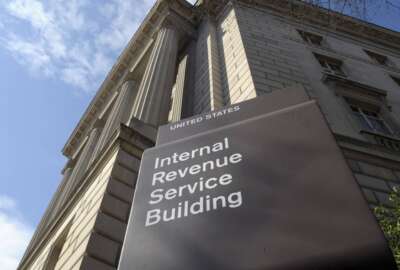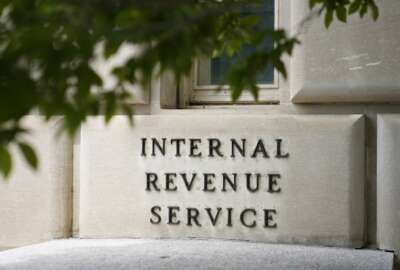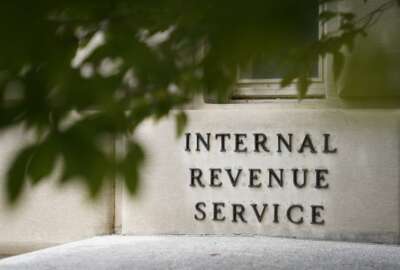Exclusive
IRS to remain ‘fully operational’ if Congress triggers government shutdown
The IRS is planning to remain "fully operational," if Congress triggers a government shutdown at the end of this month.
The IRS is planning to remain “fully operational,” if Congress triggers a government shutdown at the end of the month.
In response to a request from the National Treasury Employees Union, the IRS confirmed that if Congress fails to avert a government shutdown this fall, the agency will keep operating and pay its employees on time.
“In response to a request from NTEU, the IRS confirmed that should there be a government shutdown this fall, the agency will remain fully operational,” NTEU wrote to its members in a memo obtained by Federal News Network. “The IRS will use money from the Inflation Reduction Act (IRA) to keep its doors open. The IRS reports that all employees will be at work and will be paid timely.”
Congress has until Sept. 30 to avert a government shutdown, by either passing a comprehensive spending bill for fiscal 2024 or a continuing resolution that temporarily keeps the government funded at current spending levels.
The IRS told NTEU that the National Finance Center will also be adequately staffed to process payroll on time for IRS employees who work during a potential government shutdown.
NTEU said the IRS’ latest contingency plans are similar to plans it made last September, after Congress passed the Inflation Reduction Act in August 2022.
The union said the IRS will share a new, updated contingency plan, once it is approved by the Treasury Department, “but its underlying rationale will not change.”
“The IRS has determined that the IRA provided supplemental appropriations that are available to the IRS through Sept. 30, 2031, for all IRS appropriations accounts,” NTEU stated.
NTEU and other federal employee groups are urging lawmakers to adequately fund federal agencies and avoid a government shutdown.
The National Active and Retired Federal Employees Association (NARFE), in a Sept. 7 letter to Congress, warned a government shutdown would put an “unnecessary burden” on the federal workforce.
“It’s a tragedy that so many people live paycheck to paycheck, and federal employees are not exempt from this. A single missed paycheck, even when paid back later, can have devastating financial effects on federal employees,” NARFE National President William Shackelford wrote.
The Associated Press reported Monday that House Speaker Kevin McCarthy (R-Calif.) and House Republican leaders are planning on a continuing resolution that would keep the federal government funded a current levels through Nov. 1.
Lawmakers, meanwhile, are still far from agreeing on a comprehensive spending plan for FY 2024.
The Senate passed all 12 of its fiscal 2024 spending bills out of committee, but only one FY 2024 spending bill has made it through committee in the House so far.
The Senate spending bills reflect a debt ceiling deal struck by the Biden administration and House Republicans to keep non-defense discretionary spending roughly flat in fiscal 2024. But House Republicans are pursuing deeper federal spending cuts than what’s outlined in the debt ceiling deal.
Senate Majority Leader Chuck Schumer (D-N.Y.) urged House Republicans to “reject all-or-nothing tactics” and avert a government shutdown.
“The American people don’t want a shutdown. It would undo so much of our progress to lower costs, create millions and millions of jobs, and help our economy recover from the pandemic,” Schumer said on the Senate floor Tuesday.
Copyright © 2025 Federal News Network. All rights reserved. This website is not intended for users located within the European Economic Area.
Jory Heckman is a reporter at Federal News Network covering U.S. Postal Service, IRS, big data and technology issues.
Follow @jheckmanWFED






